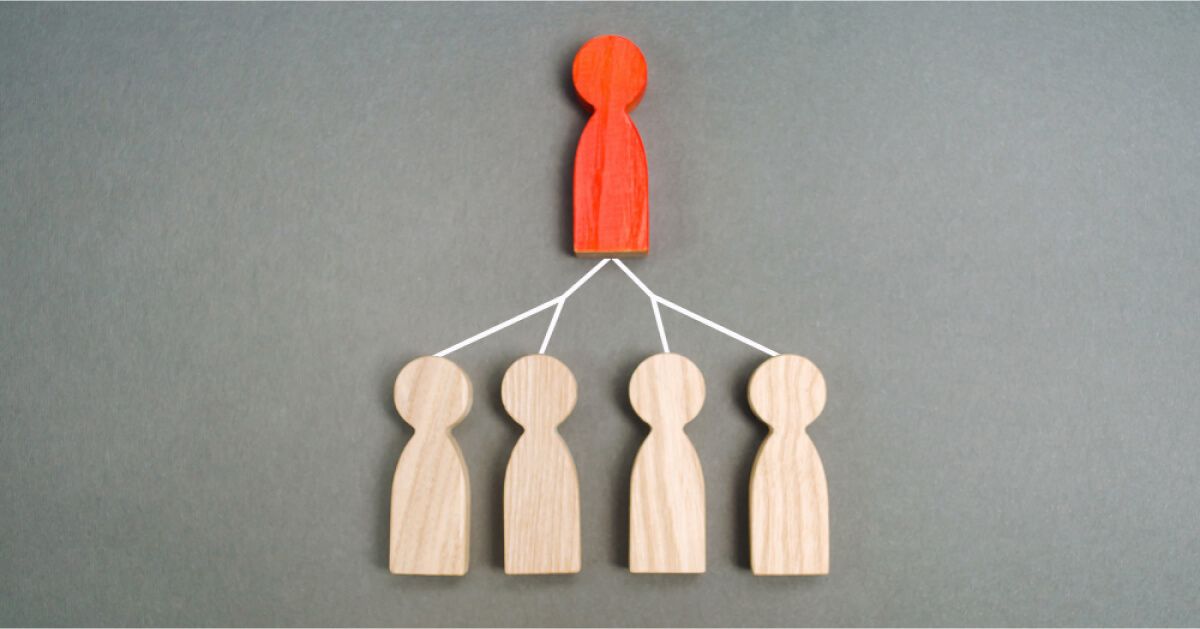Respect in the workplace: Top 5 examples to get inspiration from in 2024

The concept of respect in the workplace might seem like a fundamental principle, so ingrained in professional conduct that it barely warrants discussion. However, a closer look reveals its multifaceted nature and profound impact on an organization's well-being.
Respect, in a professional setting, transcends courteous greetings and polite interactions. It fosters a thriving environment where co-workers and individuals feel valued, empowered, and motivated to contribute their best.
Infact a study, cited in the Memphis Business Journal a few years ago, found that 80% of the employees surveyed believed that lack of respect is a serious problem in the workplace.
This blog post delves into the essence of respect in the workplace, exploring its various dimensions and its significance for both employees and employers.
We will examine the different forms that respect can take, from acknowledging the inherent worth of every colleague to recognizing and appreciating diverse perspectives.
Ultimately, we will also demonstrate how respect serves as the cornerstone of a successful organization, driving employee satisfaction, productivity, and overall organizational excellence.
What does respect mean in the workplace?

Respect in the workplace involves recognizing and valuing the contributions, abilities, and perspectives of colleagues, regardless of their role or position. It encompasses treating everyone with courtesy and kindness and fostering an environment where employees feel appreciated and heard.
Respect manifests in various forms, from acknowledging someone's ideas during a meeting to giving credit for their hard work. It also involves being considerate of different cultural backgrounds, personal circumstances, and communication styles, promoting an inclusive and harmonious work environment.
Respect also means maintaining professional boundaries and ensuring that interactions remain appropriate and constructive. It involves active listening, being open to feedback, and addressing conflicts with a collaborative mindset rather than a confrontational one.
By cultivating a respectful atmosphere, employees are more likely to feel valued and motivated, leading to increased job satisfaction and productivity. A respectful workplace also encourages personal growth, as individuals are more willing to share their insights and take on new challenges when they know their contributions will be respected.
Ultimately, respect in the workplace is foundational to building a positive organizational culture. It fosters trust, collaboration, and a sense of belonging among employees, which are crucial for the overall success and well-being of both the individuals and the organization as a whole.
Importance of respect at work

Respect at work is crucial for fostering a more positive work environment, and productive environment. It forms the foundation of effective teamwork, collaboration, and overall workplace harmony. Here are several reasons why respect is important at work:
1. Enhances communication
When employees feel respected, they are more likely to communicate openly and honestly. This leads to better understanding, fewer misunderstandings, and more effective problem-solving. Respectful communication encourages the sharing of ideas and feedback, which can drive innovation and improvement.
2. Builds trust and cooperation
Respect is integral to building trust among team members. When employees trust each other, they are more likely to collaborate effectively, support one another, and work towards common goals. This trust can also lead to stronger working relationships, more comfortable sharing of ideas, and a more cohesive team.
3. Increases job satisfaction and morale
Feeling respected and valued by other team members boosts employee morale and job satisfaction. When employees know that their contributions are appreciated, they are more motivated and engaged in their work. This can lead to higher levels of productivity and a positive workplace culture.
4. Reduces stress and conflict
A respectful work environment can help minimize stress and prevent conflicts. Employees are less likely to engage in negative behaviors such as gossiping, bullying, or undermining each other when there is a culture of mutual respect. This same respect creates a healthier and more supportive workplace.
5. Promotes diversity and inclusion
Respecting different perspectives, backgrounds, and experiences is essential for creating an inclusive workplace. When diversity is valued, it leads to a wider range of ideas and approaches and more creative solutions which can enhance creativity and decision-making.
6. Encourages professional growth
Respectful environments support personal and professional development. Employees report they are more willing to take risks, seek out learning opportunities, and pursue career advancement when they feel respected. This can lead to a more skilled and adaptable workforce.
7. Improves organizational reputation
Companies that prioritize respect and create positive workplace cultures are more likely to attract and retain top talent. A respectful and positive work environment can enhance the organization's reputation as a great place to work, which can also positively impact customer relationships and business success.
Aspects of respect in the workplace
Respect in the workplace encompasses several key aspects that collectively foster a positive and productive environment. One crucial aspect to gain respect is courtesy and politeness.
This involves simple actions such as greeting colleagues warmly, using polite language, and expressing gratitude. Courteous behavior sets a tone of mutual consideration and creates a welcoming atmosphere.
Active listening is another fundamental aspect. When employees genuinely listen to each other, it shows that they value others' opinions and contributions. This means giving full attention during conversations, not interrupting, and responding thoughtfully. Active listening helps build trust and encourages open communication.
Acknowledging and appreciating diversity is also vital. Respecting different backgrounds, perspectives, and experiences enriches the workplace culture. This involves being open-minded, avoiding stereotypes, and creating an inclusive environment where everyone feels valued and accepted.
Recognition of contributions and achievements by team members is an important form of respect. Giving credit where it’s due, celebrating successes, and acknowledging hard work boosts morale and reinforces a culture of appreciation. This can be through formal rewards or simple, sincere compliments.
Lastly, professionalism and fairness are essential. Treating the same respect to everyone equally, maintaining confidentiality, and addressing conflicts impartially ensure that respect is maintained across all interactions.
This creates a sense of security and fairness, which is crucial for employee satisfaction and retention. Data shows that when employees are respected they are 110% more likely to stay with their organization.
The negative effects of a disrespectful workplace culture

A disrespectful workplace culture can have numerous negative effects:
- Diminished employee morale: Employees may feel undervalued and demotivated, leading to decreased job satisfaction and lower productivity.
- Increased stress and anxiety: A hostile work environment can create constant worry about being criticized or demeaned, leading to mental and physical health issues.
- High employee turnover: According to the Human Resources Employee Engagement Statistics, 63% of those who do not feel treated with respect intend to leave their present job within two years. Disrespected employees are more likely to seek other employment, leading to increased recruitment and training costs and disrupting team dynamics.
- Decreased collaboration and innovation: Fear of ridicule or dismissal can make employees reluctant to share ideas or collaborate, stifling creativity and hindering adaptation to market changes.
- Poor communication and conflict: Disrespect can lead to misunderstandings and unresolved conflicts, creating a toxic environment that hampers effective teamwork.
- Damage to organizational reputation: A culture of disrespect can tarnish the organization’s image, making it difficult to attract and retain top talent and potentially impacting customer relationships.
- Legal and financial risks: Disrespectful behaviors can lead to harassment or discrimination claims, resulting in costly legal battles and financial penalties.
What is the ROI of workplace respect?

The Return on Investment (ROI) of workplace respect is substantial, impacting various aspects of organizational performance and employee well-being. Here are key points highlighting the ROI of workplace respect:
- Increased productivity: Respectful workplaces boost employee morale and engagement, leading to higher productivity. Employees who feel valued are more motivated and committed to their tasks, resulting in better performance and output.
- Improved employee retention: A respectful work environment reduces turnover rates. Employees are more likely to stay with a company where they feel respected and valued, saving the organization significant costs related to recruitment, training, and onboarding.
- Enhanced innovation and creativity: Respectful workplaces encourage open communication and idea sharing. When employees feel their opinions are valued, they are more likely to contribute innovative solutions and creative ideas, driving business growth and competitiveness.
- Better team collaboration: Respect fosters trust and cooperation among team members. Effective collaboration leads to smoother workflows, efficient problem-solving, and higher-quality outcomes, positively impacting project success and overall organizational performance.
- Reduced absenteeism and health costs: Respectful work environments lead to lower stress levels and better mental and physical health among employees. This results in reduced absenteeism and lower healthcare costs for the organization.
- Lower legal and compliance risks: A respectful workplace minimizes the risk of legal issues related to harassment, discrimination, and workplace conflicts. This reduces potential legal costs and protects the organization’s financial and reputational assets.
What are respectful workplace behaviors?
Respectful workplace behaviors are essential for fostering a positive and productive environment. One key behavior is active listening, which involves giving full attention to the speaker, not interrupting, and responding thoughtfully. This shows that you value others' opinions and contributions, enhancing mutual respect and understanding.
Courtesy and politeness are fundamental. Simple acts like greeting colleagues warmly, saying “please” and “thank you,” and acknowledging others' efforts contribute to a pleasant and respectful atmosphere. These small gestures can significantly impact overall workplace morale and relationships.
Constructive feedback is another important behavior. Providing feedback in a way that is supportive and aimed at improvement, using constructive criticism rather than criticism, helps maintain respect while encouraging professional growth. It involves focusing on the issue rather than the person and offering solutions or suggestions.
Inclusivity and fairness are crucial to successful business, as well. Treating everyone equally, regardless of their role, background, or personal characteristics, ensures that all employees feel valued and respected. This includes being mindful of diverse perspectives and avoiding discriminatory or biased behaviors.
Lastly, acknowledging and appreciating contributions is essential. Recognizing and celebrating others' achievements and hard work reinforces a culture of respect and appreciation. This can be through formal recognition programs or simply expressing gratitude and praise in day-to-day interactions.
What happens if you don’t have respect in the workplace?

A lack of respect in the workplace can lead to numerous negative consequences, impacting both employees and the organization as a whole. One major issue is diminished employee morale.
When respect is lacking, employees often feel undervalued and demotivated, resulting in decreased job satisfaction and lower productivity. This can create a cycle of disengagement where employees are less likely to put in their best effort.
Increased stress and anxiety are also common in disrespectful environments. Employees may experience heightened levels of stress due to fear of criticism or ridicule, which can lead to mental health issues such as anxiety and depression.
This, in turn, can contribute to physical health problems, like hypertension and burnout, affecting overall employee well-being.
High employee turnover is another significant consequence. Disrespected employees are more likely to leave the organization, leading to increased costs associated with the recruitment, training, and onboarding of new hires. Frequent turnover also disrupts team dynamics and the continuity of projects, further impacting productivity.
Decreased productivity and collaboration respect and innovation occur when employees are reluctant to share ideas or collaborate due to fear of disrespect. This stifles creativity and hampers the organization’s ability to innovate and adapt to market changes, ultimately affecting its competitiveness.
Moreover, poor communication and conflict are prevalent in a disrespectful workplace. Misunderstandings and unresolved conflicts can create a toxic environment, impeding effective teamwork and collaboration. This not only affects day-to-day operations but also the overall organizational culture.
How much do employees value respect in the workplace?

Employees place a high value on respect in the workplace, as it directly impacts their job satisfaction, motivation, and overall well-being. Here are several key points highlighting the importance employees place on respect:
- Job satisfaction: Employees who feel respected are more likely to be satisfied with their jobs. In fact, data shows that employees who felt that their leaders treated them with respect were 63% more satisfied with their jobs. Respectful treatment makes them feel valued and appreciated, which enhances their overall job experience and loyalty to the organization.
- Motivation and engagement: Respect boosts motivation and engagement. When employees feel their contributions are acknowledged and valued, they are more likely to be committed to their work and perform at their best. This leads to higher productivity and better outcomes for the organization.
- Mental and physical well-being: A respectful work environment positively affects employees' mental and physical health. Reduced stress and anxiety levels lead to better focus and productivity, while overall well-being reduces absenteeism and health-related costs.
- Team collaboration and cohesion: Respect fosters trust and cooperation among team members. Effective collaboration and strong working relationships are essential for successful team dynamics and achieving organizational goals.
- Retention and loyalty: Respectful treatment is a key factor in employee retention. Employees are more likely to stay with an organization where they feel respected and valued, reducing turnover and the associated costs of hiring and training new employees.
- Organizational reputation: A culture of respect enhances the organization's reputation. Employees are proud to work for a respected company and are more likely to recommend it to others, attracting top talent and improving overall competitiveness.
5 Respect in the workplace examples to get inspiration from

Here are five examples of respect in the workplace to inspire you:
- Active listening: Employees practice attentive listening during meetings and discussions, demonstrating respect by valuing others' opinions and perspectives without interrupting.
- Recognition and appreciation: Managers regularly acknowledge employees' achievements and efforts publicly or privately, showing respect for their hard work and contributions to the team.
- Inclusivity: The company promotes inclusivity by actively seeking diverse perspectives, respecting different backgrounds, and ensuring all voices are heard and valued in decision-making processes.
- Professional courtesy: Colleagues interact with each other courteously, using polite language, showing consideration for each other's time, and treating everyone with dignity and respect.
- Conflict resolution: The organization handles conflicts respectfully and professionally, encouraging open dialogue, seeking mutually beneficial solutions, and ensuring all parties feel heard and respected throughout the process.
How to build a culture of respect in the workplace?

Building a fair environment and culture of respect in the workplace requires intentional effort and commitment from all levels of the organization. Here are key steps to cultivate a respectful workplace culture:
- Lead by example: Leaders and managers should model respectful behaviors in their interactions with employees and colleagues. They set the tone for the organization's culture through their actions and decisions.
- Establish clear expectations: Define and communicate expectations for respectful behavior through company policies, codes of conduct, and training programs. Ensure everyone understands what is expected of them in terms of respectful communication and interactions.
- Promote open communication: Encourage transparent and open communication channels where employees feel comfortable expressing their opinions and concerns without fear of judgment or reprisal. Actively listen to feedback and address any issues promptly.
- Provide training and development: Offer training on topics such as communication skills, conflict resolution, diversity and inclusion, and emotional intelligence. Equip employees with the tools and knowledge they need to navigate challenging situations respectfully.
- Recognize and reward: Acknowledge and reward behaviors that exemplify respect, such as teamwork, empathy, and collaboration. Celebrate achievements and efforts that contribute to a positive and respectful work environment.
- Address issues promptly: Take swift and appropriate action to address disrespectful behavior when it occurs. Implement fair and consistent disciplinary measures as needed to uphold the organization's values.
- Foster inclusivity: Embrace diversity and create an inclusive environment where all individuals feel valued and respected. Ensure policies and practices promote equity and fairness for everyone.
Significance of workplace culture surveys in measuring and improving respect in the workplace
Workplace culture surveys play a crucial role in measuring and improving respect in the workplace by providing valuable insights into employees' perceptions, experiences, and sentiments regarding respect within the organization.
These surveys typically include questions that assess various aspects of workplace culture, including communication, teamwork, diversity, and leadership skills and behaviors related to respect.
Surveys allow organizations to quantitatively assess how respected employees feel based on their interactions with colleagues, supervisors, and the overall organizational environment. Through anonymous feedback, employees can express their views honestly, highlighting areas where respect may be lacking or where improvements are needed.
They also help pinpoint specific areas or departments where respect issues may be more prevalent. This data enables targeted interventions and corrective actions to address underlying issues, such as implementing additional training on respectful communication or leadership development programs focused on fostering a culture of respect.
Additionally, regularly conducted surveys provide a longitudinal view of changes in workplace culture over time. Organizations can track improvements in respect indicators and gauge the effectiveness of initiatives implemented to enhance respect. This ongoing feedback loop allows for adjustments and continuous improvement efforts.
At the same time, by soliciting employees' input through surveys, organizations demonstrate a commitment to listening to their concerns and valuing their opinions. This involvement can increase employee engagement and morale, as employees feel empowered and appreciated when their feedback contributes to positive changes in the workplace.
Conclusion
Cultivating a culture of respect in the workplace is essential for fostering a positive and productive environment where employees feel valued, motivated, and engaged.
By prioritizing respect through leadership examples, clear communication, training initiatives, and proactive measures to address issues, organizations can significantly enhance employee satisfaction, reduce turnover, and boost overall performance.
Workplace culture surveys play a pivotal role in this process, offering valuable insights that help measure current levels of respect, identify areas for improvement, and track progress over time.
To embark on building or strengthening a culture of respect in your organization, consider conducting regular culture surveys to gather employee feedback and implement targeted strategies.
By consistently promoting respect and inclusivity, organizations not only create a more supportive and enjoyable workplace but also position themselves for long-term success in attracting and retaining top talent.
FAQs
1. How can leaders demonstrate respect in the workplace?
In the workplace, leaders can demonstrate respect through several key practices. Firstly, they should actively listen to their team members, valuing their ideas and concerns. Secondly, maintaining transparency in decision-making fosters trust and respect. Additionally, acknowledging and appreciating individual contributions publicly reinforces a culture of respect. Lastly, leaders should prioritize fairness and inclusivity, ensuring all voices are heard and considered.
2. Why is inclusivity important for fostering respect?
Inclusivity plays a crucial role in fostering respect within any organization. By embracing diversity of perspectives, backgrounds, and experiences, inclusivity promotes a culture where every individual feels valued and understood. This fosters mutual respect as team members appreciate the richness that different viewpoints bring to decision-making and problem-solving processes. Inclusivity also enhances empathy and reduces biases, creating a supportive workplace.
3. What role does feedback play in maintaining a respectful workplace?
Feedback plays a pivotal role in maintaining a respectful workplace by providing constructive guidance and opportunities for growth. When delivered thoughtfully and respectfully, feedback demonstrates a commitment to mutual improvement and understanding. It encourages open communication and cultivates a culture where individuals feel valued and supported in their professional development.
4. How can organizations address disrespectful behavior effectively?
Organizations can effectively address disrespectful behavior by establishing clear policies and procedures that outline potential consequences. Training programs should emphasize respectful communication and conflict resolution skills. Prompt and fair investigation of reported incidents is crucial, followed by appropriate disciplinary actions if warranted. Fostering a culture where respectful behavior is celebrated through leadership helps create a workplace where all individuals feel valued.
5. What are the benefits of a respectful workplace beyond employee satisfaction?
A respectful workplace yields benefits beyond employee satisfaction, including enhanced productivity and efficiency. Respectful environments foster better teamwork and collaboration, leading to innovative problem-solving and higher morale. Reduced conflicts and turnover contribute to cost savings and continuity. Moreover, a reputation for respect attracts top talent and enhances the organization's brand image.



